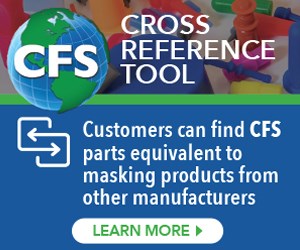Good Advice? Ask 5 Questions
Even one new detail uncovered by good questions might alter the advice we would have offered in the first place.
A friend and owner of a contract manufacturing company called not long ago asking to meet for coffee and I gladly accepted. As we sat across the table from each other, he poured out a cup along with his latest challenge.
A salesperson he had hired a while back was struggling. He hadn’t brought a single significant piece of new business in the last year and had almost no open quotes or projects to show for his work. “He doesn’t seem hungry,” my friend said. “He’s not overly motivated and shows almost no sense of urgency when I share my concerns.”
I immediately saw his problem and the likely solution for what it was. Non-motivated business development people with little or no sense of urgency rarely excel in sales roles.
My urge was to immediately share with my friend the obvious solution. My urge was to tell him he had to redeploy the person to a role more suited to his personality or to let the underperforming salesperson go altogether. My urge was to tell my friend that his problem and its solution were obvious and that he should stop wasting time analyzing the issue and instead get on with resolving the issue.
I resisted all of these urges.
As business people, when we are asked for opinions or advice — by customers, suppliers, other leaders, our team members — we are usually quick to give it up. This is rarely the best response.
I took a deep breath and asked my friend what personality traits were important in business development people. He responded that the role required someone who was goal-oriented, driven, liked interacting with people, exhibited self-confidence and could follow through on details. I asked him how the person in question measured up to these and my friend acknowledged not very well.
I asked him what goals were set for the person, in terms of numbers of quotes and revenue performance and he said these had been very clearly communicated and measured regularly.
I asked whether the number of customers and prospects the person was expected to visit and the number of virtual meetings he was to conduct were clearly defined and whether cold calling and outbound lead generation were key aspects of success. They were. I inquired whether the person was exhibiting these behaviors adequately in the day-to-day execution of the job. Not surprisingly, he was not.
I asked if the person was expected to travel and whether he did travel. Yes, and not much were the answers.
I then asked, if the position was open and the person in question applied for it, would my friend hire him for the job. Unlikely.
The deeper we get into our careers, the more we know and the more advice we have to offer. I’ve disciplined myself in situations like this one, even when the path forward is obvious — no, especially when it’s obvious — to avoid speaking in statements and instead ask questions. A minimum of five of them before offering advice.
I continued.
I asked my friend if we turned the clock forward 12 months and this person was still working for the company, what the odds would be that my friend would be pleased with the individual’s performance during the coming year. He said very low.
I then asked…
Actually, I never got the chance to ask the next question. My friend looked at me and said, “Oh my gosh, I have to let him go!”
Exactly.
When asked for your opinion or advice, ask at least five questions first. Several benefits accrue:
More often than not, the person seeking the advice will get to the right solution on their own through careful consideration elicited by your thoughtful inquiry.
They will have more conviction in their plan if they arrive at it themselves than if the solution is spoon-fed to them. In fact, in my experience, often those seeking advice will push back or argue with solutions offered by another even though they were the one who asked for help in the first place. When the solution is their own idea, there’s nobody to push back on and when they arrive at the solution on their own, they’ll be more likely to implement it.
Finally, oftentimes through careful questioning, we trip over a detail that wasn’t shared in the initial problem stated by the individual looking for help. Even one new detail uncovered by good questions might alter the advice we would have offered in the first place.
The next time someone puts their trust in you, looking for advice, eschew the desire to immediately offer solutions, take a deep breath, and ask five questions.
Read Next
Powder Coating 4.0: Smarter, Faster, More Efficient and Connected
New tools reduce cost and waste, lower manufacturing footprint of powder coating operations.
Read MoreEpisode 42: An Interview with Robin Deal, Hubbard-Hall
Hubbard-Hall wastewater treatment specialist Robin Deal discusses the latest trends in wastewater management.
Read MoreThe 2024 Ford Mustang: All the Colors Available
Although Chevrolet has announced the end of the Camaro and Dodge is offering “Last Call” editions of the Charger and Challenger, the Ford Mustang is launching to its seventh generation.
Read More






















